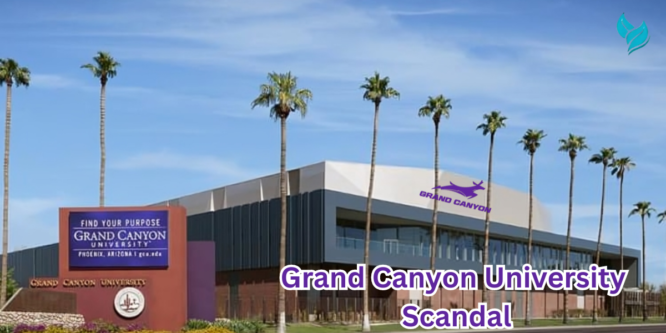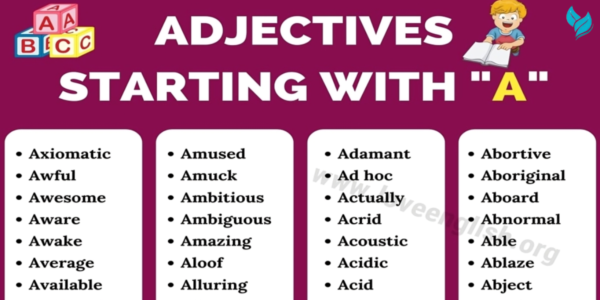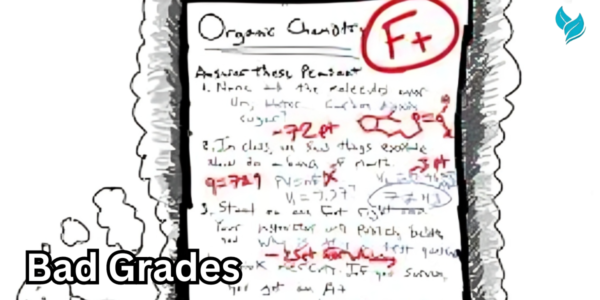Grand Canyon University (GCU), a well-known Christian university based in Phoenix, Arizona, has earned its reputation for its high-quality education, diverse programs, and online offerings. However, like many institutions of higher learning, it has been subject to controversy over the years. The Grand Canyon University scandal refers to a series of issues related to its for-profit status, financial dealings, and legal challenges that have called into question the ethics and practices of the institution.
In this article, we will dive into the details of the scandal, its impact on the university, and the lessons that can be drawn from the situation.

The History and Background of Grand Canyon University
GCU’s Transition from Nonprofit to For-Profit
GCU was originally founded in 1949 as a private, nonprofit Christian college. In 2004, after facing financial struggles, the university made a significant shift and became a for-profit institution under new ownership. This transition helped GCU grow exponentially. Enrollment increased, campus facilities expanded, and the university became a major player in online education, attracting students from across the country.
The Return to Nonprofit Status
In 2018, GCU made headlines again as it sought to return to nonprofit status. The university argued that this move would align its financial structure with its Christian mission and attract more students who might prefer attending a nonprofit institution. The transformation was supposed to improve GCU’s reputation and allow it to focus more on education rather than profit generation. However, this transition sparked controversy, leading to the Grand Canyon University scandal.
The Controversy Behind GCU’s Nonprofit Status
The 2018 IRS Denial
In 2018, GCU’s bid to transition back to a nonprofit status was rejected by the Internal Revenue Service (IRS). The IRS was concerned that the ownership structure of GCU would still allow significant profits to flow to a separate for-profit entity, Grand Canyon Education, Inc. This raised eyebrows and brought up questions about the true motivation behind the nonprofit shift.
Critics argued that GCU was attempting to reap the benefits of nonprofit tax status while still functioning like a for-profit institution. This blurred line between nonprofit and for-profit activities was the foundation of the Grand Canyon University scandal.
Department of Education Involvement
In addition to the IRS rejection, the U.S. Department of Education also became involved in the situation. The Department conducted its own investigation and determined that GCU should still be classified as a for-profit institution based on its financial and operational ties to Grand Canyon Education, Inc.
The university strongly disagreed with this classification, maintaining that it operates as a nonprofit entity dedicated to serving its students. However, the Department of Education’s ruling left GCU in a complicated position, as it continued to face scrutiny over its business model and governance.
Financial and Legal Implications of the Scandal
Questionable Financial Dealings
One of the major elements of the Grand Canyon University scandal revolves around its financial practices. After GCU’s supposed transition to nonprofit status, critics alleged that the university was funneling substantial profits to its former parent company, Grand Canyon Education, Inc. Although GCU was functioning as a nonprofit on paper, it was still paying millions in fees for services like marketing, recruitment, and management to the for-profit entity.
This structure created the perception that GCU was exploiting the nonprofit tax benefits while still prioritizing profit maximization, leading many to question whether the university was truly acting in the best interests of its students.
Legal Challenges
As a result of these financial dealings, GCU has faced several lawsuits and legal challenges. These cases have centered around accusations of misleading business practices, improper use of federal funds, and the university’s handling of student loans and financial aid.
While GCU has consistently denied any wrongdoing, the ongoing legal battles have cast a shadow over its reputation, further fueling the Grand Canyon University scandal and raising concerns about the transparency and accountability of the institution’s leadership.
Grand Canyon University Scandal: A Comprehensive Overview
Key Events and Timeline
| Date | Event | Details |
|---|---|---|
| 2018 | GCU Transitions to Non-Profit Status | The university transitioned to non-profit, but financial conflicts soon emerged regarding its business model. |
| 2020 | Financial Allegations | Allegations arose of improper financial practices involving federal student aid. |
| 2023 | Class Action Lawsuit | Students filed a class-action lawsuit citing false advertising and financial misconduct by the university. |
“The scandal at Grand Canyon University not only highlights critical issues in higher education management but also raises questions about the accountability of non-profit institutions.”
Further Reading
Impact on Students and Faculty
Trust in the Institution
One of the most significant effects of the Grand Canyon University scandal has been the erosion of trust among students, faculty, and the public. Many prospective students now question whether GCU is genuinely committed to providing a quality education or if it is more focused on financial gain. This has led some students to seek alternative universities that have clear and unambiguous nonprofit or public statuses.
Potential Financial Consequences for Students
The scandal has also raised concerns about the potential financial consequences for students, particularly those who rely on federal loans and financial aid. If authorities find that GCU improperly used federal funds, students may become vulnerable to financial instability. This fear has contributed to a sense of uncertainty among current and prospective students.
Faculty Concerns
The faculty at GCU has also expressed concerns about the university’s direction. Some faculty members feel that the administration’s focus on profits has overshadowed the academic mission of the institution, potentially compromising the quality of education. The Grand Canyon University scandal has caused many within the university community to question whether the school’s leadership is prioritizing its long-term mission of Christian education and student success.
Lessons from the Grand Canyon University Scandal
The Grand Canyon University scandal highlights several critical issues that students, parents, and educational institutions should consider when evaluating universities:
Transparency is Key
Whether a university operates as a nonprofit or for-profit, transparency in its financial dealings is essential. Students and their families deserve to know how their tuition dollars are being spent and whether those funds are being used to further the institution’s educational mission or to pad the pockets of executives and shareholders.
The Importance of Ethical Leadership
A university’s leadership sets the tone for the entire institution. It is vital that educational leaders prioritize the long-term success and well-being of students rather than short-term financial gain. The Grand Canyon University scandal serves as a reminder that ethical leadership is crucial in maintaining a university’s integrity and reputation.
The Blurring of Nonprofit and For-Profit Lines
The controversy surrounding GCU’s nonprofit status demonstrates the complexity of the for-profit education industry. Students and families should be cautious when evaluating schools that have undergone transitions between nonprofit and for-profit models, as these changes can have significant implications for the quality of education and the institution’s priorities.

FAQs
1. Is Grand Canyon University still considered a for-profit institution?
As of now, the U.S. Department of Education classifies GCU as a for-profit institution, despite the university’s claim of operating as a nonprofit entity. This classification is at the heart of the Grand Canyon University scandal.
2. How has the scandal affected GCU’s reputation?
The Grand Canyon University scandal has raised concerns about the university’s transparency and ethics, causing some students and faculty to question the administration’s motives. While GCU continues to enroll thousands of students, the scandal has created uncertainty around the institution’s future.
3. What financial issues are involved in the scandal?
The scandal involves allegations that GCU continues to funnel profits to its former parent company, Grand Canyon Education, Inc., despite its nonprofit status. This has led to questions about the university’s true motivations and financial practices.
4. Can students still trust GCU?
While GCU has faced scrutiny, it remains accredited and continues to offer a variety of academic programs. However, students should carefully evaluate the situation and make informed decisions when choosing where to pursue their education.
Conclusion
The Grand Canyon University scandal has brought significant attention to the blurred lines between for-profit and nonprofit institutions in higher education. As GCU continues to navigate these challenges, the university’s ability to maintain trust and transparency will be critical in determining its future success. For students, this scandal serves as a reminder to thoroughly research universities and consider how their financial structures and leadership decisions may impact their educational experience.











